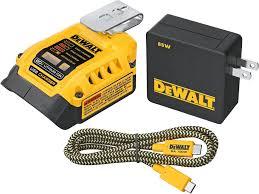Notifications

2 minutes, 45 seconds
-9 Views 0 Comments 0 Likes 0 Reviews

A Battery to USB Adapter is a device that allows you to power or charge USB-powered electronics (such as smartphones, LED lights, fans, or other gadgets) using standard batteries (typically AA, AAA, 9V, or lithium-ion cells like 18650).
A Battery to USB Adapter is a compact electronic device that:
Converts the DC voltage from batteries (usually between 1.5V–12V)
Into a stable 5V output, which is the standard voltage for USB ports
It typically includes:
A battery holder for inserting one or more batteries
A step-up (boost) voltage regulator to increase voltage
A USB output port (Type-A or micro USB)
Battery Insertion: You insert standard batteries (AA, AAA, or rechargeable cells) into the holder.
Boost Converter: The adapter contains a circuit called a DC-DC boost converter, which raises the battery voltage to 5V DC—the required power level for USB devices.
Example: Two AA batteries provide 3V → boosted to 5V
USB Output: The adapter spectrum color delivers regulated 5V power to any device connected via USB.
Protection Circuitry (in quality models):
Over-voltage protection
Short-circuit protection
Overcurrent control
| Battery Type | Output | Usage Examples |
|---|---|---|
| AA/AAA (1.5V) | 5V | Emergency phone charging, small fans |
| 9V Battery | 5V | Lightweight emergency power source |
| 18650 Li-ion (3.7V) | 5V | DIY power banks, camping tools |
| Rechargeable packs | 5V | Hobby projects, outdoor devices |
Portable – Ideal for emergency power when no outlet is available
Versatile – Can power USB devices anywhere
Great for DIY Projects – Makers and electronics enthusiasts love them
Limited Battery Life – Standard AA batteries won’t last long under heavy loads
Low Current Output – Often capped at 0.5A–1A, not suitable for fast charging
Voltage Drop – Performance may degrade as battery power drops
Emergency smartphone charging
Powering Raspberry Pi, Arduino, or sensors
Running small USB fans or lights during travel or camping
Science and electronics experiments

